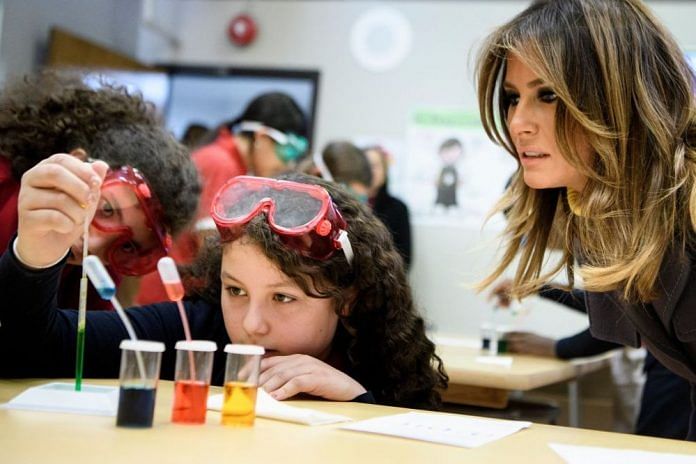Disparate outcomes between men and women remain one of the most contentious issues in American life. Now there is new research suggesting that the inequalities could be even more persistent than feared — in part because many men seem to have more confidence than women.
The first new study focuses on performance in high school, and the startling result is this: Girls with more exposure to high-achieving boys (as proxied by parental education) have a smaller chance of receiving a bachelor’s degree. Furthermore, they do worse in math and science, are less likely to join the labor force, and more likely to have more children, which in turn may limit their later career prospects.
Those are disturbing results. Exposure to high-achieving peers is normally expected to be a plus, not a minus. It is what parents are trying to do when they place their children into better schools, or when school systems work hard to attract better students.
Nonetheless, the researchers (all three of whom are women) dug into the data and found that female students, when exposed to the high-achieving male counterparts, suffer from lower confidence and, in measurable ways, weaker aspirations. It is difficult, however, to discern why this happens. Are the young women directly discouraged by the presence of the high-achieving young men? Or do teachers reallocate their attention in a way that harms the prospects of the young women? So far it’s unclear, although separate evidence shows that stereotypes can increase gender gaps in self-confidence.
The inequity is greater yet: The biggest losers are the young girls who measure in the bottom half of the ability distribution. In contrast, when boys are exposed to more high-achieving male students, it doesn’t seem to hurt their future chances at all.
The researchers describe these results are “quantitatively important”: In statistical language, an increase in the percentage of high-achieving boys, by one standard deviation, decreases the chance of the girls’ obtaining a bachelor’s degree by somewhere between 2.2 and 4.5 percentage points. Another study, cited by the authors, suggests that, after exposure to high-achieving young men, young women lose some interest in mathematics and mathematics-intensive majors.
The bright news in this study is that when girls in the bottom half of the measured ability distribution are exposed to high-achieving girls, their chances of attaining a bachelor’s degree rise. Obviously this is a possible argument for all-girl schools, although the researchers do not evaluate that option. Still, even if that conclusion were justified, most nations, including the U.S., do not have a predominance of all-girl or all-women schools, and if anything they are moving in the opposite direction.
A second new study finds that even blind review does not avoid gender bias in the processing of grant proposal applications, drawn from data from the Gates Foundation. It turns out that women and men have different communications styles, with the women more likely to use narrow words, and the men more likely to use broader ones. And reviewers, it turns out, favor broad words, which are more commonly associated with more sweeping claims, and disfavor the use of too many narrow words.
The net result is that “even in an anonymous review process, there is a robust negative relationship between female applicants and the scores assigned by reviewers.” This discrepancy persists even after controlling for subject matter and other variables. Notably, however, it disappears when controlling for different rhetorical styles.
These two studies probably are connected to each other. While the two sets of researchers do not address each other’s claims, it is not a huge leap to think of broader, more sweeping language as reflecting a kind of confidence, whether merited or not. Narrow words, on the other hand, may reflect a lower level of confidence or a greater sense of rhetorical modesty. Not only might lower confidence hurt many women in life, but a greater unwillingness to signal confidence — regardless of whether it’s genuine — might hurt them too.
In my career as a professor, I’ve often encountered students, both male and female, without sufficient confidence. I’ve found that simply raising my expectations doesn’t help, and sometimes makes matters worse by increasing the pressure but not giving them the means to handle it. So a simple rah-rah about women’s empowerment may not be the answer. When it comes to addressing the gender confidence gap, we are still looking for answers.



